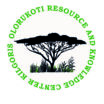Madam Elizabeth Marema Mrema excutive Secretary of the CBD, Mr. Francisco Cali Tzay, Special Rapporteur on the rights of Indigenous Peoples, Parties to the Convention of Biological Diversity, UN agencies, Indigenous Peoples and Local communities, International organizations, partners and friends, greetings and Thank you for your time.
For the International Indigenous Forum on Biodiversity and the Indigenous Women and Biodiversity Network, it is our great pleasure to celebrate the International Day of Word’s Indigenous Peoples together. We are celebrating while in a crucial discussion of our 3rd dialogue of the Post 2020 global biodiversity framework. It is an opportunity to celebrate and acknowledge Indigenous Peoples and Local communities’ contribution to protect nature and the need to increase effort to recognize and ensure our collective rights on land, territories and waters, which contain the most important biodiversity for the world.
This year’s theme is “Leaving No One Behind: Indigenous Peoples and the call for a new social contract.”
Currently, in the negotiation process for the adoption of a new deal for nature, the post-2020 global biodiversity framework, we as Indigenous Peoples and local communities continue calling upon the Parties to the convention, UN agencies and all other partners of development not to leave us behind and have a new social contract. This is why we are here today, to discuss a process that we know if completed and well implemented, it will make a lot of difference in helping us all to restore our ecosystems.
Ladies and Gentlemen, Indigenous Peoples and local communities, IPBES Global Assessment report on Biodiversity and Ecosystems Services has produced reports with red flags on the deteriorating ecosystems and has given many reasons for that. More so according to a recent report by UNEP and FAO, there has never been a more urgent need to revive damaged ecosystems than now. Ecosystems support all life on Earth. The healthier our ecosystems are, the healthier the planet – and its people. Thus the reason for having The UN Decade on Ecosystem Restoration which aims to prevent, halt and reverse the degradation of ecosystems on every continent. The decade is expected to help end poverty, combat climate change and prevent a mass extinction of our Biological resources. But only remember this will only succeed if everyone plays a part. The report has data that shows the fact that we are using the equivalent of 1.6 Earths to maintain our current lifestyle. Yet beyond the grim scale of current ecosystem degradation, the report also contains an inspiring truth: we are making progress on the conservation of ecosystems and we have a strategy for the coming decade for restoration on the needed scale. We are also told that ,there are now approximately 3.04 trillion trees on Earth. That is 46% fewer than at the onset of agriculture, about 12,000 years ago.
When we hear these figures and different reports we get worried. I appreciate all of you here and to you my colleagues for the hard work you have put in since the start of the formulation and discussion of the Post 2020 Global Biodiversity framework. We have to keep going.
At the same time indigenous Peoples have a lot to appreciate, as we celebrate this days. We are happy because we have a better voice than before we have recognition than we had before but still, have a long way, before our rights are fully respected and recognized. Let us continue working collectively together making sure that we take the outcomes of these discussions to our regions, and local levels, that way we will not leave no one behind, a human rights approach is important, because we know Indigenous Peoples and Local communities are partners to re-establish the relationship between peoples and nature and play a vital role in biodiversity management. We have great hope that the dialogue in the negotiation process of the new deal for nature is a characteristic of the process, of leave no one behind, making sure indigenous peoples, local communities, women and youth will fully and effectively participate in this process.
Thank you Chair.
